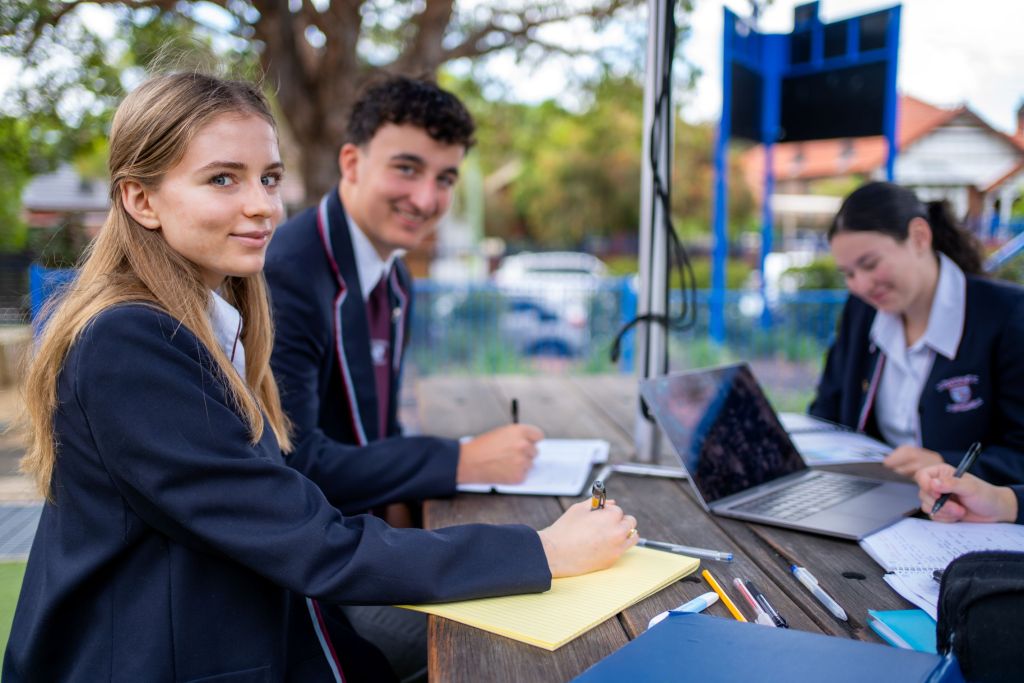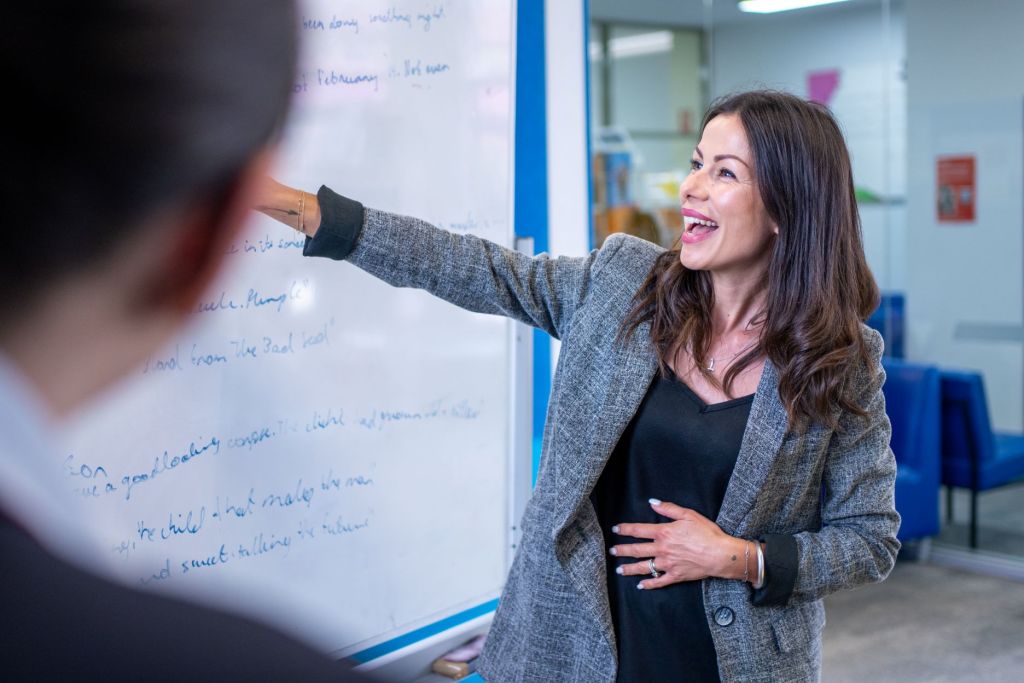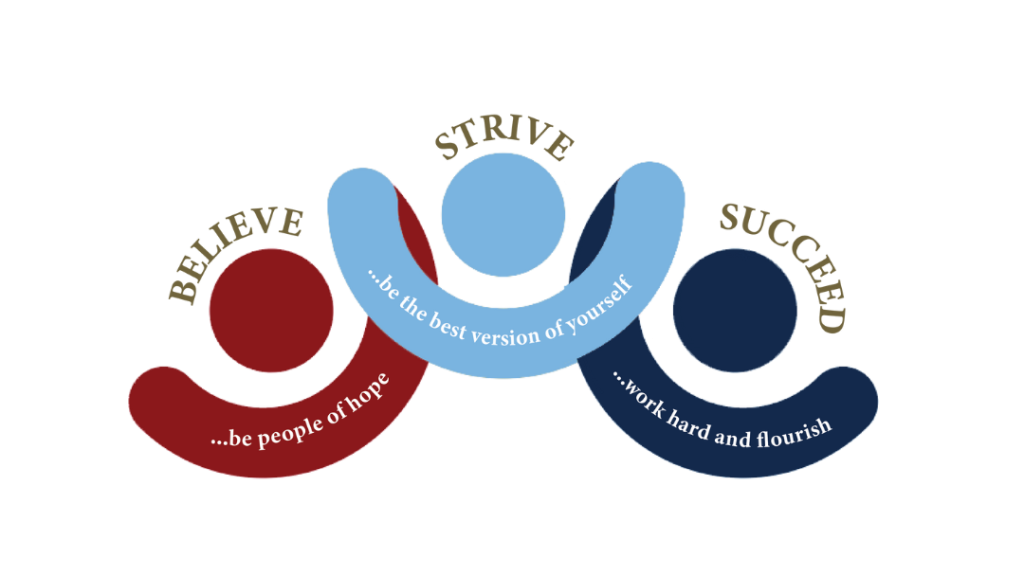By connecting to the real world of students’ lives, authentic learning enables students to become lifelong learners who contribute to society and the wider world as active and discerning citizens. Authentic learning is central to our work as Catholic educators because it promotes the continual growth and wellbeing of the whole person — spiritually, intellectually, emotionally, socially and physically.
 Vision for Learning
Vision for Learning
Believe. Strive. Succeed.
- Challenge: to strive and develop as learners with a growth mindset.
- Commit: to be persistent, resilient and to succeed in all that we do.
- Collaborate: to work together and learn from each other in achieving our goals.
- Connect: to be immersed in our Catholic, local and global communities.
- Create: to engage in creative thinking through authentic learning experiences.
Educational Philosophy

The goal of the college is to provide quality Catholic education. We have a clear focus on academic excellence for all students. Our philosophy is based on the premise that good education involves setting high standards and motivating and challenging students to achieve those standards.
We believe that good learning takes place in an organised, structured and disciplined environment. We have very clear expectations for our students in respect to the college uniform, grooming, manners, conduct, attitude and commitment to homework.
Respect for others is one of the college’s basic rules. Every student is an individual and every student is important, irrespective of his or her class, age, colour, religion or ability. We challenge our students to respect the person, the name and the property of every other student in the college.
The staff and students at Casimir respect each other and, as a result, there is a very happy and positive spirit within the school. It is a good, busy and exciting place to learn.
This year the college conducted school based Literacy and Numeracy testing for Years 7, 8 and 9. The results were analysed and many students are to be congratulated on their results, in particular, in the area of reading. These results will be used to develop personalised learning opportunities for students enabling them to further develop their literacy and numeracy skills.
